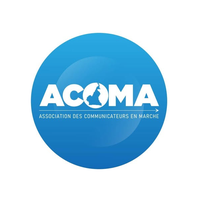Charter for Media Transparency
Background
In 2001 IPRA launched a campaign to reduce the incidence of unethical and sometimes illegal practices in the relationships between public relations professionals and the media. This resulted in the creation of a Charter. The IPRA Charter for Media Transparency has been adopted by public relations practitioners and PR associations worldwide, as well as by media organizations across the globe representing editors, executives and journalists.
The Charter
As IPRA members themselves observe the IPRA code of professional conduct, so they expect editorial providers to observe the following IPRA Charter for Media Transparency:
Editorial
Editorial appears as a result of the editorial judgement of the journalists involved, and not as a result of any payment in cash or in kind, or barter by a third party.
Identification
Editorial which appears as a result of a payment in cash or in kind, or barter by a third party will be clearly identified as advertising or a paid promotion.
Solicitation
There should be no suggestion by any journalist or members of staff of an editorial provider, that editorial can be obtained in any way other than through editorial merit.
Sampling
Third parties may provide samples or loans of products or services to journalists where it is necessary for such journalists to test, use, taste or sample the product or service in order to articulate an objective opinion about the product or service. The length of time required for sampling should be agreed in advance and all loaned products or services should be returned after sampling.
Policy
Editorial providers should prepare a policy statement regarding the receipt of gifts or discounted products and services from third parties by their journalists and other staff. Journalists and other staff should be required to read and sign acceptance of the policy. The policy should be available for public inspection.
Latest Ipra ITL:

ITL #634 The strategic role of communication in enhancing a company’s ESG profile: the Amplifon case

ITL #633 The mesh revolution: a new model for PR in an era of industry contraction

ITL #632 Accelerating legal encroachment: are lawyers taking over the lead from crisis managers?

ITL #631 Responsible guardians: nurturing the NextGen of human intelligence over the artificial




